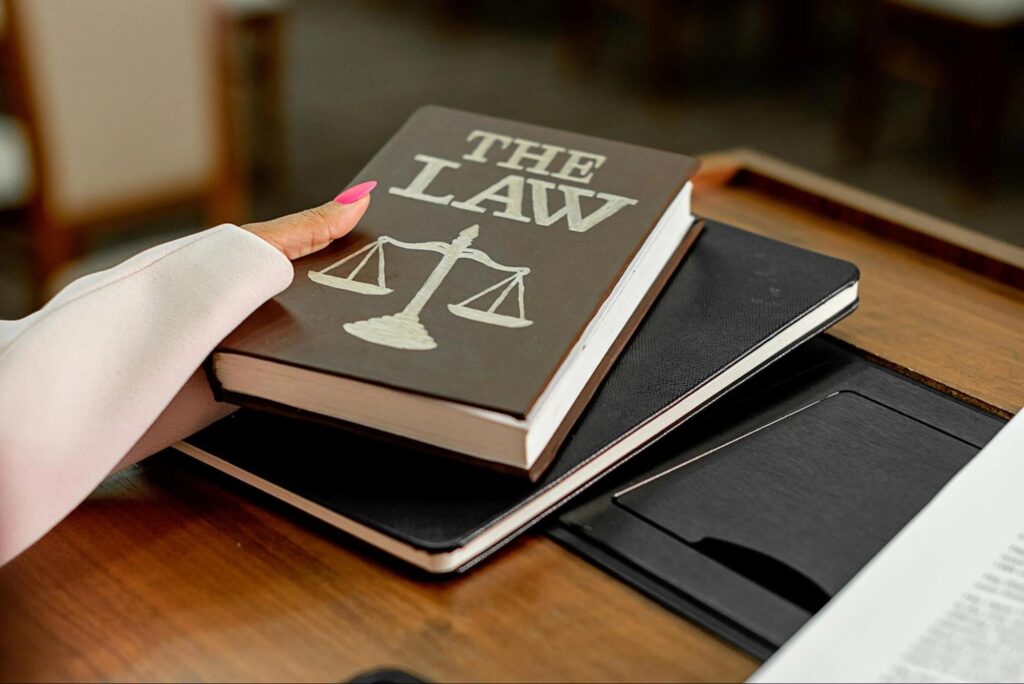Being involved in a car accident caused by a drunk driver can leave victims facing numerous challenges, including physical injuries, emotional distress, and significant financial burdens. When pursuing a settlement, it is crucial to understand the various factors that come into play, including legal aspects, negotiation strategies, and personal circumstances surrounding the accident. This article aims to elucidate the average settlement hit by drunk drivers and provides insights into the intricacies of the claims process.
Understanding the Legal Aspects of Drunk Driving Accidents

The aftermath of a drunk driving accident is often a complex legal battle. Understanding the laws surrounding DUI incidents is essential for victims seeking compensation. Drunk driving laws not only define the actions of the at-fault party but also establish a framework for determining liability in such cases.
The Role of DUI Laws in Accident Claims
DUI laws serve as a foundation for establishing negligence in drunk driving accidents. In many jurisdictions, driving under the influence is a criminal offense, and offenders can face severe penalties, including jail time and fines. These laws also serve as crucial evidence in civil claims. When proving that another driver was intoxicated at the time of the accident, the victim’s legal team can bolster their case for compensation.
Furthermore, establishing that the other driver violated DUI laws can often lead to punitive damages, which serve to punish the drunk driver and deter similar behavior in the future. This is particularly important in cases where the intoxication level is significantly above the legal limit or if there are prior offenses.
Victims may also find that the court considers the driver’s behavior leading up to the accident, such as reckless driving or erratic maneuvers, which can further strengthen the case against them and help determine the average settlement hit by a drunk driver.
Liability and Fault in Drunk Driving Accidents
Determining liability in a drunk driving accident case involves assessing the actions of both parties involved. Generally, the intoxicated driver may be held fully accountable for the damages caused. However, there can be circumstances where other parties might share some liability, such as establishments that served alcohol to the driver.
In instances where the victim contributed to the accident—in ways such as jaywalking or not wearing a seatbelt—this may affect the amount they are able to recover. Many states follow comparative negligence laws, wherein the settlement amount is adjusted based on the percentage of fault attributed to each party. This nuanced approach ensures that all factors are taken into account, allowing for a fairer resolution based on the specific circumstances of the incident. Additionally, victims may also pursue claims against insurance companies, which can add another layer of complexity to the legal proceedings, especially if the insurance policy has specific exclusions related to DUI incidents.
Moreover, it’s important to note that the emotional and psychological toll of a drunk driving accident can be significant. Victims often face not only physical injuries but also mental health challenges such as anxiety, depression, or post-traumatic stress disorder (PTSD). These factors can influence the overall compensation sought in a claim, as they reflect the long-term impact of the auto accident on the victim’s quality of life. Legal representation can help victims navigate these intricate aspects, ensuring that all dimensions of their suffering are adequately represented in court.
Factors Influencing the Settlement Amount
The settlement amount in drunk driving cases varies widely based on several interrelated factors. Understanding these components can provide victims a clearer picture of what they might expect when navigating their claim.
Severity of Injuries and Medical Expenses
The extent of injuries sustained in the car or truck accident is one of the most significant factors influencing the settlement amount. Serious injuries that require extensive medical treatment, such as surgeries or long-term therapy, naturally result in higher expenses.
Additionally, medical expenses can be categorized as past and future costs. Past medical expenses refer to costs already incurred due to the accident, while future medical expenses look at ongoing treatment needs and rehabilitation. Adjustments for these aspects help ensure that the final settlement can cover both current and anticipated future costs adequately.
Furthermore, the presence of any pre-existing conditions can complicate matters, as insurers may argue that certain medical expenses are not directly related to the accident. This highlights the importance of thorough medical documentation and expert opinions in substantiating claims.
Loss of Income and Future Earnings
Another critical factor is the impact of the injury on the victim’s ability to work. If the injuries sustained result in missed workdays, lost wages, or diminished capacity for future employment, these elements are factored into the settlement calculations.
In a claim, victims may seek compensation for both their immediate income loss and any future earnings that might be compromised due to the accident. Documentation from employers, financial statements, and expert testimony may aid in justifying these claims.
Additionally, if the victim was a primary breadwinner or had unique skills that are now impaired, the loss of income can be even more pronounced. Calculating the present value of future earnings lost due to diminished work capacity can be complex, often requiring the assistance of financial experts to project the long-term impact on the victim’s financial stability.
Pain and Suffering Compensation
Pain and suffering are more subjective components of settlement claims yet are essential in conveying the emotional and psychological toll of the accident. Victims may include expenses related to mental health treatment, therapy, or other services addressing anxiety or depression caused by the accident.
Calculating pain and suffering can be challenging, and it often relies on establishing a clear connection between the injuries and the emotional distress faced. Insurance companies and courts may use various methods, including the multiplier method or per diem approach, to assess these non-economic damages.
Moreover, the victim’s personal narrative plays a crucial role; testimonies from friends, family, and mental health professionals can help paint a vivid picture of the emotional aftermath of the accident. This personal dimension can significantly influence the perceived value of pain and suffering in negotiations, making it vital for victims to articulate their experiences effectively throughout the claims process.
The Process of Filing a Drunk Driving Accident Claim

Filing a claim after being involved in a drunk driving accident typically follows a structured process, enabling victims to seek the justice and compensation they deserve.
Gathering Evidence for Your Claim
The first step in filing a claim is the collection of pertinent evidence. This can include police reports, witness statements, medical records, and photographs of the accident site. The strength of the evidence collected can significantly influence the outcome of the case.
Additionally, keeping a detailed account of expenses incurred due to the accident—such as medical bills, rehabilitation costs, and any losses—helps build a solid case supporting the settlement amount sought.
It’s also beneficial to document any emotional distress or psychological impact resulting from the accident, as these factors can play a crucial role in the overall assessment of damages. Victims may consider seeking professional evaluations or therapy to substantiate these claims, adding further weight to their case.
Negotiating with Insurance Companies
Once the claim is filed, victims often enter negotiations with the insurance companies of the party at fault. This can be one of the most challenging aspects of the claims process, as insurance companies may initially offer settlements that are significantly lower than the actual costs incurred.
Being well-prepared with evidence and a clear understanding of your needs is essential during negotiations. Consideration of potential settlement amounts and engaging in negotiations from a position of strength can help victims achieve better outcomes.
It’s also advisable to be aware of common tactics used by insurance adjusters, such as downplaying injuries or pressuring victims to settle quickly. Understanding these strategies can empower victims to stand firm and advocate for a fair settlement that truly reflects their losses.
Taking the Case to Court
If negotiations fail to yield a satisfactory settlement, taking the case to court may become necessary. This decision requires careful planning and consideration, as the litigation process can be lengthy and may not guarantee a favorable outcome.
In court, both parties will present their cases before a judge or jury, who will ultimately determine liability and award compensation accordingly.
Victims should work closely with legal representation to navigate this process effectively, as the stakes are high and the legal framework complex. Furthermore, it’s important to prepare for the emotional toll that court proceedings can take. The courtroom environment can be intimidating, and reliving the events of the accident may be distressing. Having a support system in place, whether through friends, family, or counseling services, can be invaluable during this challenging time.
How to Maximize Your Settlement
Understanding how to maximize settlements in drunk driving accident cases can significantly impact a victim’s financial recovery. Several strategies can empower victims to ensure they receive the compensation they deserve.
The Importance of Legal Representation
One of the most critical steps to maximizing a settlement is securing experienced legal representation. An attorney specializing in personal injury and drunk driving cases will understand the nuances of such claims and can help victims navigate every stage of the process, from gathering evidence to negotiating settlements.
Legal representation can also lend credibility to a claim, as insurers may take cases more seriously when a qualified attorney advocates on behalf of the victim. This often results in more favorable settlement offers. Furthermore, an attorney can help victims understand their rights and the full scope of damages they may be entitled to, including medical expenses, lost wages, emotional distress, and even punitive damages in cases of gross negligence.
Strategies for Successful Negotiation
Successful negotiation requires preparation, patience, and strategy, especially when dealing with claims involving a commercial vehicle or commercial wheeler. Key strategies to consider include setting realistic expectations and understanding the fair value of the claim. Conducting thorough research on comparable cases, particularly those involving commercial vehicles, can provide insights into potential settlement amounts.
Being willing to counter low offers and avoiding accepting the first settlement provided by insurance companies are essential during negotiations. It is crucial to hold firm on certain aspects while maintaining flexibility to achieve a mutually agreeable outcome.
Additionally, documenting all aspects of the accident and its aftermath, including medical records, photographs of injuries, and witness statements, can bolster a victim’s position during negotiations and serve as compelling evidence of the impact the accident has had on their life.
When to Consider a Lawsuit
Deciding to file a lawsuit should come after other avenues of negotiation have been exhausted. If insurance negotiations do not result in an acceptable offer, and the need for compensation is pressing, litigation may be the next step.
Before proceeding, victims should consult their attorneys to evaluate the pros and cons of taking the case to court.
Factors such as the strength of evidence, potential court timelines, and possible outcomes should be weighed carefully to make an informed decision. It’s also worth noting that litigation can be a lengthy process, often taking months or even years to resolve, which can add stress to an already difficult situation. Victims must be prepared for this possibility and discuss with their attorney the likelihood of success in court versus the potential benefits of a settlement.
Conclusion
Being hit by a drunk driver can lead to significant upheaval in a victim’s life. However, understanding the legal framework, associated costs, and strategic approaches to filing and negotiating claims can empower victims to seek the compensation they deserve more effectively.
By taking informed steps throughout the process, victims can recover from the aftermath of such tragedies and work toward rebuilding their lives. Don’t wait – call Howe Law now for immediate assistance. Our attorneys are available 24/7 to provide expert consultations tailored to your needs.
Call us at (888) 559-7612 and visit Howe Law to learn more about our services. We’re here to support you whenever you need us!
Related Articles


























































